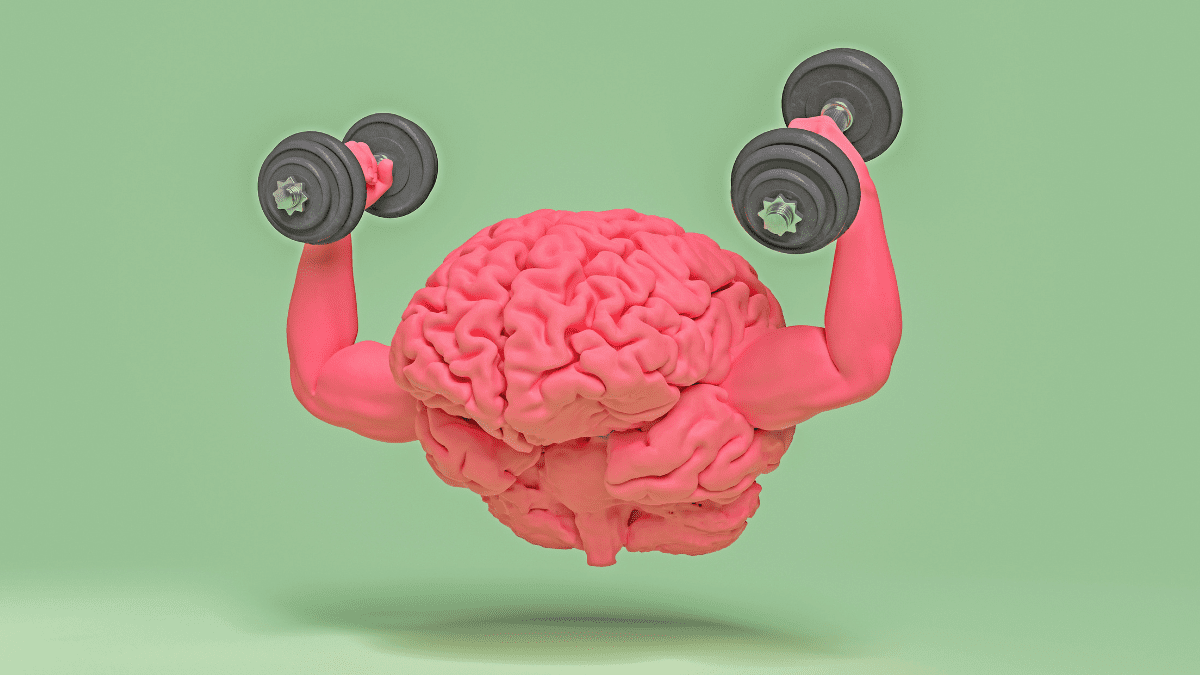Mindfulness Apps for Mental Well-being: The Ultimate Guide
Mindfulness apps offer guided meditation, stress relief, and better focus. Explore the best apps for mental well-being and find the perfect digital tool to support your mindfulness journey today.

In today’s fast-paced world, stress and distractions are everywhere. Many people struggle to find moments of peace and clarity. This is where mindfulness apps come in. These digital tools make it easier than ever to practice mindfulness, helping users reduce stress, improve focus, and enhance overall well-being—all from the convenience of their smartphones.
With guided meditations, breathing exercises, and personalized mindfulness routines, these apps bring the benefits of meditation to anyone, regardless of experience level. But with so many options available, how do you choose the best one for your needs?
In this guide, we’ll explore the top mindfulness apps, their unique features, and how they can support your mental well-being. Whether you’re a beginner looking to start a mindfulness journey or someone seeking a structured approach to meditation, there’s an app for you.
Mindfulness apps provide an accessible way to incorporate meditation and relaxation into daily life. For a deeper understanding of mindfulness and its benefits, visit:
Mindful.org – Practical Mindfulness Techniques
What Are Mindfulness Apps?
Mindfulness apps are digital tools designed to help users cultivate mindfulness through guided meditation, breathing exercises, and stress management techniques. These apps make mindfulness accessible to everyone, from beginners to experienced practitioners, by offering structured programs that can be easily integrated into daily life.
Most mindfulness apps provide:
- Guided meditations for relaxation and focus
- Breathing exercises to reduce stress and anxiety
- Sleep aids like calming sounds and bedtime stories
- Daily mindfulness reminders to build consistency
- Progress tracking to help users stay motivated
With the growing demand for mental well-being solutions, mindfulness apps have become increasingly popular. They offer a convenient way to practice mindfulness anytime, anywhere—whether it’s during a lunch break, before bed, or in moments of stress.
Benefits of Using Mindfulness Apps
Mindfulness apps offer a simple and effective way to incorporate mindfulness into daily life. Whether you’re dealing with stress, struggling with focus, or just looking for a mental reset, these apps provide scientifically backed techniques to support your well-being.
1. Reduces Stress and Anxiety
Mindfulness apps guide users through meditation and breathing exercises that help lower cortisol levels, the hormone responsible for stress. Studies have shown that regular mindfulness practice can significantly reduce anxiety and promote relaxation.
2. Improves Focus and Mental Clarity
By training the mind to stay present, mindfulness apps enhance concentration and cognitive function. Many users report increased productivity and better decision-making after practicing mindfulness regularly.
3. Promotes Better Sleep
Many mindfulness apps include sleep stories, guided relaxation, and ambient sounds designed to improve sleep quality. A consistent nighttime mindfulness routine can help ease racing thoughts and promote deep, restful sleep.
4. Enhances Emotional Regulation
Practicing mindfulness helps individuals become more aware of their emotions, leading to better emotional control and resilience. By developing self-awareness, users can respond to stressors with greater calm and clarity.
5. Encourages a Consistent Mindfulness Routine
One of the biggest challenges in mindfulness practice is consistency. Apps provide daily reminders, progress tracking, and structured programs to help users stay committed and build long-term habits.
With these benefits in mind, mindfulness apps serve as valuable tools for improving mental, emotional, and physical well-being—no matter where you are in your mindfulness journey.
Scientific research supports the benefits of mindfulness in reducing stress and improving focus. Studies show that mindfulness meditation can positively impact brain function and emotional well-being. Learn more from the following resources:

Top Mindfulness Apps for Mental Well-being
With so many mindfulness apps available, finding the right one can be overwhelming. Below are some of the best mindfulness apps, each offering unique features to support your mental well-being.
1. Headspace: Guided Meditation & Sleep
Best for: Beginners and structured learning
Headspace is one of the most popular mindfulness apps, known for its user-friendly interface and science-backed meditation programs. It offers:
- Guided meditation courses for stress, sleep, and focus
- Animations and short mindfulness exercises to make meditation engaging
- Sleep sounds and bedtime stories for relaxation
- Expert guidance from former monk Andy Puddicombe
With a free trial and a structured approach, Headspace is ideal for those new to mindfulness or looking for a well-organized experience.
2. Calm: Sleep, Meditation, and Relaxation
Best for: Sleep improvement and stress relief
Calm is a highly rated mindfulness app designed to help users relax, sleep better, and reduce anxiety. It includes:
- Sleep Stories narrated by celebrities like Matthew McConaughey
- Guided meditation sessions for stress, focus, and happiness
- Breathing exercises and nature sounds for instant relaxation
- Daily Calm reflections to start or end your day mindfully
With a serene design and diverse content, Calm is perfect for those prioritizing sleep and relaxation.
3. Insight Timer: Free Meditation & Mindfulness
Best for: Budget-conscious users and variety seekers
Unlike most mindfulness apps, Insight Timer offers a huge library of free meditations, making it a top choice for those looking for quality content without a subscription. It features:
- Over 100,000 free guided meditations from renowned teachers
- Customizable meditation timers with relaxing soundscapes
- Courses on mindfulness, self-improvement, and spirituality
- Community features to meditate with others in real time
For those who want flexibility and a vast selection of meditations, Insight Timer is an excellent free alternative.
4. 10% Happier: Meditation for Skeptics
Best for: Those skeptical about meditation or new to mindfulness
Founded by journalist Dan Harris, 10% Happier is designed for those who struggle with traditional meditation approaches. It offers:
- Science-based mindfulness practices led by meditation experts
- Practical, no-nonsense meditation techniques for everyday stress
- Short, effective sessions that fit into a busy schedule
- Courses on mindfulness, productivity, and happiness
This app is perfect for beginners who prefer a more rational, down-to-earth approach to meditation.
5. Smiling Mind: Mindfulness for All Ages
Best for: Families, kids, and workplaces
Smiling Mind is a completely free mindfulness app designed to improve mental well-being for all age groups, including children and workplaces. It features:
- Programs for kids, teens, and adults
- Mindfulness exercises tailored for schools and corporate settings
- Structured programs for stress, focus, and emotional well-being
- Bite-sized mindfulness activities to fit into any schedule
For those looking for a free, family-friendly mindfulness app, Smiling Mind is an excellent choice.
Headspace: Guided Meditation & Sleep
Headspace provides structured mindfulness programs and guided meditations for beginners and advanced users. Visit:
Headspace Official Website
Calm: Sleep, Meditation, and Relaxation
Calm focuses on sleep improvement, stress relief, and guided meditation. Visit:
Calm Official Website
Insight Timer: Free Meditation & Mindfulness
Insight Timer offers a large selection of free guided meditations from mindfulness experts. Visit:
Insight Timer Official Website
10% Happier: Meditation for Skeptics
10% Happier is ideal for those who prefer a practical, science-based approach to mindfulness. Visit:
10% Happier Official Website
Smiling Mind: Mindfulness for All Ages
Smiling Mind provides free mindfulness programs designed for children, families, and workplaces. Visit:
Smiling Mind Official Website
How to Choose the Right Mindfulness Apps for You
With so many mindfulness apps available, finding the one that fits your lifestyle and goals can feel overwhelming. Here are some key factors to consider when choosing the right mindfulness app for your needs:
1. Cost: Free vs. Paid Features
- Some apps, like Insight Timer and Smiling Mind, offer a vast amount of free content.
- Others, such as Headspace and Calm, require a paid subscription for full access.
- Consider whether you’re willing to invest in a premium app or prefer free alternatives.
2. User Experience & Design
- A clutter-free, intuitive interface makes using an app easier and more enjoyable.
- Apps like Headspace and Calm are known for their visually soothing and user-friendly designs.
- If you prefer minimal distractions, choose an app with a simple and clean layout.
3. Customization & Personalization
- Some apps provide personalized meditation recommendations based on your goals.
- Calm and 10% Happier offer structured courses, while Insight Timer allows you to build your own meditation practice.
- Consider whether you need daily guidance or prefer a more flexible experience.
4. Type of Content & Features
- Sleep aid: Choose an app with sleep stories, relaxing sounds, and bedtime meditations (Calm, Headspace).
- Guided meditation: Look for structured meditation courses with step-by-step guidance (Headspace, 10% Happier).
- Flexibility: Apps with an extensive library of free content provide more variety (Insight Timer).
- Kids or families: Consider mindfulness apps designed for children and family-friendly use (Smiling Mind).
5. Scientific Backing & Expert Guidance
- Some mindfulness apps collaborate with neuroscientists, psychologists, and meditation experts.
- 10% Happier features expert-led meditations backed by science.
- Headspace and Calm include research-based programs for stress and anxiety management.
- If you prefer evidence-based mindfulness practices, check if the app is supported by credible experts.
Final Thought: Find What Works for You
Choosing the right mindfulness app is a personal decision. The best app is the one that fits seamlessly into your daily routine, keeps you engaged, and helps you achieve your mindfulness goals. Don’t be afraid to try out different apps until you find the perfect match!

Tips for Getting the Most Out of Mindfulness Apps
Downloading a mindfulness app is just the first step. To truly experience the benefits, consistency and intentionality are key. Here are some practical tips to help you make the most of your mindfulness app.
1. Set Daily Reminders
- Many apps allow you to set notifications and reminders for your meditation practice.
- Consistency is important—start with just 5–10 minutes a day and gradually increase your practice.
2. Start Small and Be Patient
- Don’t pressure yourself to meditate for long sessions right away.
- Short 2–5 minute breathing exercises can be just as effective, especially for beginners.
- Progress takes time, so be kind to yourself if your mind wanders.
3. Try Different Meditation Styles
- Experiment with guided meditations, breathing exercises, body scans, and mindful movement.
- Some apps, like Insight Timer, offer a wide variety of meditation styles to explore.
- Finding what resonates with you will make mindfulness more enjoyable.
4. Use Mindfulness Beyond the App
- Mindfulness doesn’t have to be limited to app sessions—practice it in daily life.
- Try mindful eating, mindful walking, or simply paying attention to your breath throughout the day.
- Combine mindfulness apps with offline activities like journaling or yoga.
5. Track Your Progress for Motivation
- Many apps provide streaks, milestones, and progress tracking to keep you motivated.
- Seeing your improvement over time can reinforce the habit and make mindfulness feel rewarding.
6. Create a Peaceful Space for Meditation
- Find a quiet and comfortable spot where you won’t be disturbed.
- Use headphones to minimize distractions and immerse yourself in the experience.
- Consider adding calming elements like soft lighting, aromatherapy, or a cozy cushion.
By integrating these habits, mindfulness apps can become a powerful tool for managing stress, enhancing focus, and improving overall well-being.
Are Mindfulness Apps Effective? (Science & Research)
Mindfulness apps are widely used, but do they actually work? Research suggests that digital mindfulness tools can be effective in reducing stress, improving focus, and enhancing emotional well-being. Let’s take a look at the science behind their effectiveness.
1. Scientific Studies on Mindfulness Apps
- A study published in JAMA Internal Medicine found that mindfulness meditation apps significantly reduce stress and anxiety when practiced regularly.
- Research from Harvard Medical School suggests that using guided meditation apps can lead to structural changes in the brain, improving areas associated with emotional regulation and focus.
- A study from Clinical Psychology Review showed that smartphone-based mindfulness interventions can help manage depression and promote psychological resilience.
2. How Mindfulness Apps Influence the Brain
- Reduces activity in the amygdala – the brain’s “fear center,” helping with stress and anxiety management.
- Strengthens the prefrontal cortex – improving decision-making, focus, and self-awareness.
- Enhances the hippocampus – boosting memory and learning capabilities.
3. Real-Life Benefits Reported by Users
- Better sleep: Many users of Calm and Headspace report improved sleep quality after using guided sleep meditations.
- Less stress and anxiety: Studies show that even 10 minutes of daily mindfulness can lower cortisol levels, reducing stress.
- Increased focus and productivity: Apps like 10% Happier have been used in corporate settings to help employees stay more focused and efficient.
4. Limitations of Mindfulness Apps
While mindfulness apps are effective, they aren’t a one-size-fits-all solution:
- Consistency is key – benefits are only seen with regular practice.
- Not a replacement for therapy – while helpful for stress relief, mindfulness apps are not a substitute for professional mental health care.
- May lack personalization – some users find generic meditation programs less effective than in-person or live mindfulness coaching.
Final Verdict: Do Mindfulness Apps Work?
Yes, when used consistently, mindfulness apps can be a powerful tool for improving mental well-being. While they may not replace traditional mindfulness practices or therapy, they provide an accessible and effective way to reduce stress, enhance focus, and promote emotional resilience.
For a deeper dive into the scientific evidence supporting mindfulness practices, explore our article: Mindfulness and the Brain: The Science of Transformation
Conclusion
Mindfulness apps provide an accessible and effective way to incorporate mindfulness into daily life. Whether you’re looking to reduce stress, improve focus, or sleep better, there’s an app suited to your needs.
From structured programs like Headspace and Calm to free meditation libraries like Insight Timer, each app offers unique features to help you stay consistent with your mindfulness practice. While these digital tools aren’t a substitute for therapy or traditional meditation practices, research shows that regular use can significantly improve mental well-being.
If you’re new to mindfulness, start small—just a few minutes a day can make a difference. Experiment with different apps, find one that resonates with you, and most importantly, stay consistent.
Frequently Asked Questions (FAQ)
1. What is the best mindfulness app for beginners?
Headspace is a great option for beginners due to its structured courses and easy-to-follow guided meditations. Calm is also beginner-friendly with its relaxing audio and sleep features.
2. Are there any free mindfulness apps?
Yes! Insight Timer offers thousands of free guided meditations, while Smiling Mind is a completely free mindfulness app designed for all ages. Many paid apps also offer free trials or limited free content.
3. Can mindfulness apps really reduce stress and anxiety?
Yes, research shows that mindfulness meditation can lower cortisol (the stress hormone) and improve emotional regulation. Many users report reduced anxiety after consistent use of mindfulness apps.
4. How often should I use a mindfulness app?
For best results, aim to practice mindfulness at least 5-10 minutes per day. Consistency is key—regular meditation is more effective than occasional long sessions.
5. Which mindfulness app is best for sleep?
Calm is one of the best apps for sleep, offering bedtime stories, sleep meditations, and relaxing sounds. Headspace also has a sleep section with guided wind-downs.
6. Do mindfulness apps work for kids?
Yes! Smiling Mind and Headspace for Kids offer mindfulness exercises specifically designed for children to help with focus, emotional regulation, and relaxation.
7. Can I use a mindfulness app if I have no meditation experience?
Absolutely! Mindfulness apps are designed for all experience levels. Apps like Headspace and 10% Happier offer beginner-friendly guidance to help you get started.
8. Are mindfulness apps better than traditional meditation?
Mindfulness apps make meditation more accessible and convenient, but they don’t replace traditional meditation or in-person guidance. They’re a great complement to other mindfulness practices.
9. How do I choose the right mindfulness app for me?
Consider factors like cost (free vs. paid), content variety, guided vs. self-led practice, and specific features like sleep stories or progress tracking. Testing different apps can help you find the best fit.







